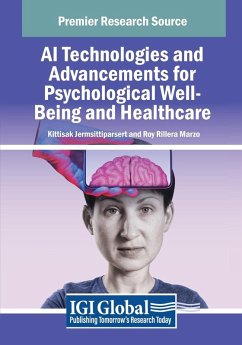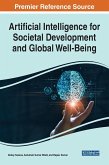In mental health care, artificial intelligence (AI) tools can enhance diagnostic accuracy, personalize treatment plans, and provide support through virtual therapy and chatbots that offer real-time assistance. These technologies can help identify early signs of mental health issues by analyzing patterns in speech, behavior, and physiological data. However, the integration of AI also raises concerns about privacy, data security, and the potential for algorithmic bias, which could impact quality of care. As AI continues to evolve, its role in psychological well-being and healthcare will depend on addressing these ethical and practical considerations while harnessing its potential to improve mental health outcomes and streamline healthcare delivery. AI Technologies and Advancements for Psychological Well-Being and Healthcare discusses the latest innovations in AI that are transforming the landscape of mental health and healthcare services. This book explores how AI applications, such as machine learning algorithms and natural language processing, are enhancing diagnostic accuracy, personalizing treatment options, and improving patient outcomes. Covering topics such as behavioral artificial intelligence, medical diagnosis, and precision medicine, this book is an excellent resource for mental health professionals, healthcare providers and administrators, AI and data scientists, academicians, researchers, healthcare policymakers, and more.
Hinweis: Dieser Artikel kann nur an eine deutsche Lieferadresse ausgeliefert werden.
Hinweis: Dieser Artikel kann nur an eine deutsche Lieferadresse ausgeliefert werden.








